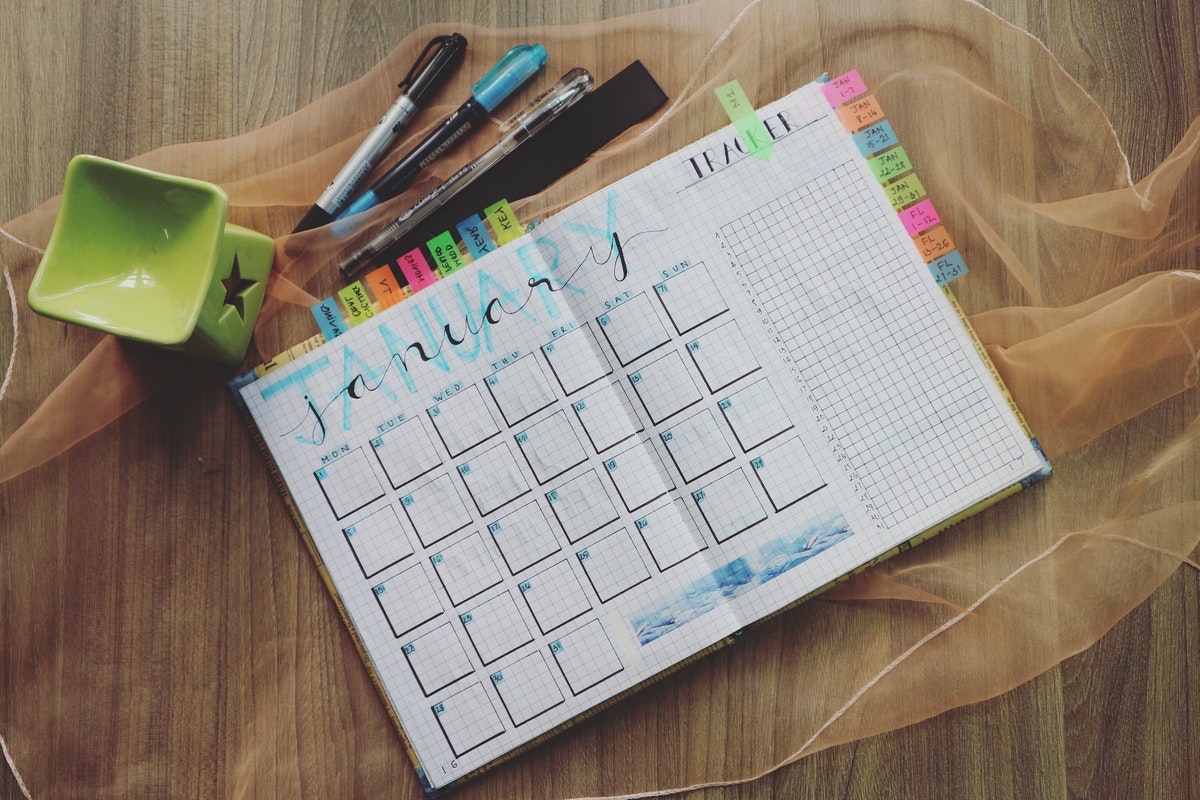As students, we're normally running around and trying to make the most of our days. However, making time for readings, assignments, classes, labs, cooking, and hanging out with friends can get a little overwhelming. It’s common to feel like 24 hours in a day isn't enough. But it doesn’t have to be this way! Here’s my advice to help you find time for everything on your to-do list as well as making some time for yourself.
Find your preferred agenda or calendar

In this digital era, you can find amazing apps to build your calendars and agendas digitally. However, some people prefer to have their day planned out on paper. Figure out which way works best for you. It’s important to find a method you enjoy and find easy to use, otherwise you’ll never actually use it. Personally, I like to have a combination of both.
Start filling your agenda/calendar

First, make sure you go over the syllabus for each of your classes and input all your due dates for assignments, quizzes, and exams. Another important thing you should always include is financial due dates (when tuition is due, credit card payments, scholarship deadlines, etc). You might also want to include dates for project meetings if you have large group projects during the semester.
Prioritize it all

You will probably have a ton of things to add to your agenda/calendar. So, the order in which you schedule your to-dos is very important. Start with the things that are non-negotiable, like class times and job shifts. Then, you can include all your personal meetings and events. It’s great to know when things are due, but you also need to know when you won’t be able to do things. Once you have all your set dates and times, you can start to input study/work time, leisure time, and meal/sleep time.
Block your time

Finally, you can start blocking your time in your calendar. As before, start with the big non-negotiable stuff, like class times or work shifts. Then add in the flexible stuff. An example could be, “Work on Assignment 2 from 3–5pm on Wednesday”. These more flexible time slots can be set to repeat every week, depending on your workload and where you want your focus to be.
Be realistic

Set up time blocks that are realistic. It may be ideal for you to work on your readings for 5 hours straight but, in reality, you'll probably read for an hour and a half before becoming distracted and doing something else. If you aren’t honest about your abilities, you’ll quickly become overwhelmed and you won’t complete your tasks. Don’t forget to allow some free time for yourself, which is just as important as work/study time.
Having so many things to do in ongoing lists that never seem to be completed can get overwhelming. Time management is a skill that needs to be learned and practiced, so if you don’t get your calendar to fit your requirements perfectly in the first week, don’t worry. Keep practicing and you will start to get the hang of it! If you want to learn more about managing your time better, check out Dal's time management workshops that are being held virtually in 2021–22.

